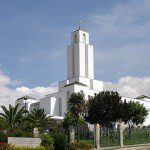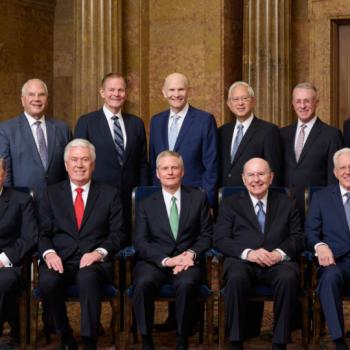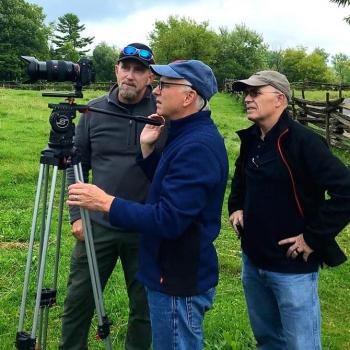
First, though: The executive board of the Interpreter Foundation met this morning, from 9 AM to just a few minutes after 12:00 noon. (Virtually, I should add, lest some of my perpetual critics suffer cardiac arrest while vying with one another in their indignation and outrage over yet another redundant example of my depravity.) Anyway, it seems from that meeting that, in fact, Interpreter isn’t dead yet.
In fact, here are some new items that have just appeared on our website:
Interpreter Radio Show — January 17, 2021
A recording of the 17 January 2021 broadcast of the Interpreter Radio Show is now available online, at no charge. In it, Bruce Webster, Kris Frederickson, and Mike Parker discuss difficulties encountered in scripture study as well as considering temple covenants. The first portion of the show was devoted to a roundtable focusing on the upcoming Come Follow Me Doctrine and Covenants lesson #9 (D&C 18 & 19). The Interpreter Radio Show can be heard Sunday evenings from 7 to 9 PM (MDT), on K-TALK, AM 1640, or you can listen live on the Internet at ktalkmedia.com.
And there’s also this, from the , , , and
Book of Moses Essays #40: Moses 1 in Its Ancient Context: Moses’ Vision at the Veil (Moses 1:27–30)
And we shouldn’t forget the nice write-up that Interpreter’s Witnesses film project just received in the Deseret News:
“‘Not made up or imagined’: Witnesses of Book of Mormon will be featured in a new film”
***
Moreover, we probably need to mention this item, fresh from the Christopher Hitchens Memorial “How Religion Poisons Everything” File©:
“‘Latter-day Saint Showers’ offering dignity to Riverside’s homeless population”
***
I have offered it as my opinion—though I regard it as an opinion that is firmly grounded in the scriptures—that only a partial or preliminary gathering of the Jews has occurred thus far, at least in the sense of the word gathering that was used by ancient prophets and apostles. What practical conclusions can we draw from this proposition, if it is true? One conclusion to be drawn is that Latter-day Saints are not obliged to give a blank check of unqualified approval to the government of Israel. Israel as it exists in the Near East is a nation-state much like other nation-states of the region and the world. It is not to be identified with Israel as the people of God. There may perhaps be some overlap, there may be—as I believe there is—a link between political Israel and spiritual Israel in the eternal purposes of God, but they are not one and the same. “For,” as the apostle Paul says, “they are not all Israel, which are of Israel.”[1] I have occasionally heard Western Christians, including some Latter-day Saints, talk as if we must support every action and every policy of the government of Israel because that government is the leadership of God’s chosen people. But this is false. Worse, I believe it is idolatrous. We are not obligated to give such complete and abject loyalty to any mortal political institution on the face of the earth—neither to our own government nor, certainly, to the government of Israel. We are under no obligation to be more supportive of whatever Israeli prime minister happens to be in power than are the Israeli opposition parties themselves. (And there is sometimes fierce dissent in the Israeli Knesset!)
Our sympathy for Israel—and, as I read the prophecies and the scriptures, as Latter-day Saints we cannot fail to have such sympathy—must not blind us to the fact that Zion and the Jerusalem of the last days must be built upon the principles of the gospel and on the basis of the ethical teachings of the Hebrew and other prophets sent by the Lord. And those principles are rather clear.
Wherewith shall I come before the Lord, and bow myself before the high God? shall I come before him with burnt offerings, with calves of a year old? Will the Lord be pleased with thousands of rivers of oil?… He hath shewed thee, O man, what is good; and what doth the Lord require of thee, but to do justly, and to love mercy, and to walk humbly with thy God?[2]
I hate, I despise your feast days, and I will not smell in your solemn assemblies. Though ye offer me burnt offerings, and your meat offerings, I will not accept them: neither will I regard the peace offerings of your fat beasts. Take thou away from me the noise of thy songs; for I will not hear the melody of thy viols. But let judgment [justice] run down as waters, and righteousness as a mighty stream.[3]
And I will turn my hand upon thee, and purely purge away thy dross, and take away all thy tin: And I will restore thy judges as at the beginning: afterward thou shalt be called, The city of righteousness, the faithful city. Zion shall be redeemed with judgment [justice], and her converts with righteousness.[4]
The scriptures even offer guidance on the troubling problem of how Israel should treat the Palestinians who live under its control.
And if a stranger sojourn with thee in your land, ye shall not vex him. But the stranger that dwelleth with you shall be unto you as one born among you, and thou shalt love him as thyself; for ye were strangers in the land of Egypt: I am the Lord your God.[5]
When injustices are perpetrated by any side in the Near East, we must be clear-sighted enough to recognize them and honest enough to condemn them wherever they occur and whoever is responsible. “Speak for justice,” the Qur’an says, “even if it affects your own kinsmen.”[6] That is what the ancient Israelite prophets plainly did:
For the vineyard of the Lord of hosts is the house of Israel, and the men of Judah his pleasant plant: and he looked for judgment [justice], but behold oppression; for righteousness, but behold a cry.[7]
How is the faithful city become an harlot! it was full of judgment [justice]; righteousness lodged in it; but now murderers.[8]
The ancient prophets of Israel were willing to condemn injustices committed by their people within the Holy Land itself. Indeed, they were even more concerned about injustice and unrighteousness among the chosen people than with similar offenses committed elsewhere, because they held Israel to a higher standard. “For of him unto whom much is given much is required; and he who sins against the greater light shall receive the greater condemnation.”[9] It was because the prophets loved Israel that they sought to make it better. We ourselves can do no less, for ourselves and for the rest of the house of Israel. It will not suffice for us to choose sides, to pick a team in the way the world does, and then to pretend not to notice the outrages and injustices committed by our alleged allies.[10] Leaders of the Church have repeatedly reminded us that the Church as such takes absolutely no position on the Arab-Israeli conflict. President Howard W. Hunter put this quite clearly while yet a member of the Council of the Twelve:
We do not need to apologize nor mitigate any of the prophecies concerning the Holy Land. We believe them and declare them to be true. But this does not give us justification to dogmatically pronounce that others of our Father’s children are not children of promise.
Elder Hunter admonished
members of the Church who give the impression that we favor only the aims of the Jews. The Church has an interest in all of Abraham’s descendants… Both the Jews and the Arabs are children of our Father. They are both children of promise, and as a church we do not take sides.[6]
[1] Romans 9:6.
[2] Micah 6:6-8.
[3] Amos 5:21-24.
[4] Isaiah 1:25-27.
[5] Leviticus 19:33-34.
[6] 6:152.
[7] Isaiah 5:7.
[8] Isaiah 1:21.
[9] Doctrine and Covenants 82:3.
[10] As I work on this revised edition, a revered and long retired professor of political philosophy at Brigham Young University, Alma Don Sorenson, has just passed away, and I’ve been reading the reminiscences of some of my friends, both former students of his and former colleagues, who knew him far better than I did. One of them recalls once asking him, “Are you a Democrat or a Republican?” “I’m a Latter-day Saint,” came the instant response. I like that answer.
[11] Howard W. Hunter, “All Are Alike Unto God,” Ensign 9 (June 1979), 72-72. Compare also the statements of Elders Hunter, William R. Bradford, and W. Grant Bangerter, recorded respectively at Baldridge, Grafting In, i; 57; and Barrett, The Story of the Mormons in the Holy Land, 102. David B. Galbraith, first president of the Jerusalem Branch and holder of a doctorate in political science from the Hebrew University of Jerusalem, makes much the same point at Baldridge, Grafting In, 65.











